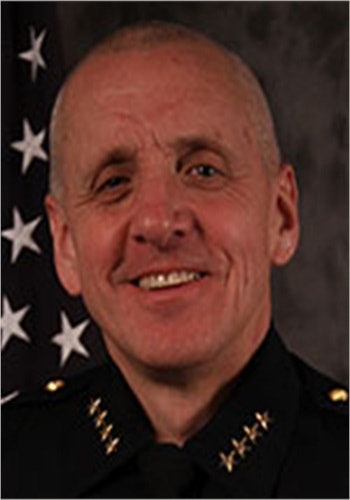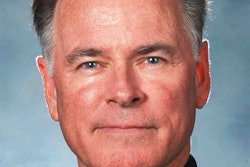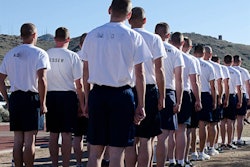
Chief Michael C. Koval of the Madison (Wis.) Police Department recently wrote a post on his blog in response to commentary in a local newspaper regarding whether police need AR-15s. He presents his perspective as a law enforcement officer. Below is the post in its entirety.
In a recent opinion commentary submitted by a guest in a local newspaper, a number of issues are raised (related to whether police need AR-15's) that compel me to provide our community with a different perspective. A perspective that is coming from a career police officer of over 30 years; and now I live a life that is ever-apprehensive should the phone ring bearing bad news about one of my 450 officers. As Chief of the Madison Police Department, I have to do everything in my power to field a force that respects, communicates, collaborates, and earns the trust of the citizens we have pledged to serve. But it is equally important to me that each and every one of my officers returns home safely to their families after another day of selfless service.
The most prominent theme in the piece authored by the guest columnist decries the "needs" of the Madison Police Department for taking prudent steps to keep our workforce safe with the tools and technology that are sometimes necessary as a means of keeping citizens and cops out of harm's way. I, too, have criticized the "militarization" of policing in general, and of my own Department, at times. But my frame of reference is calling out those instances where agencies or departments have minimized their officers' relational skills, compromised on sacred trusts or values, or undermined constitutional limitations that are rightfully placed upon the police. Those departments that are more intrigued with tactical resolutions, where the force of the police (both legally as well as physically) is the overriding answer to all of our questions are casting a pall on those of us who took a pledge to uphold the rights of others. The public needs (and I demand) police officers who are more compassionate, can build empathy, are adept communicators, are resourceful problem solvers, and strive for resolutions that explore alternatives to ticketing and arresting away whatever challenges stand in our way.
Most coverage I have seen in a post-Ferguson world focuses on the "stuff" that the police have (i.e., armored rescue vehicles, rifles, hard gear, etc.) without examining the substantive benchmarks of what makes a Department worthy of public confidence: it's the personnel you hire, the width and breadth of the training you provide, the Department's policies and procedures in using the equipment, the leadership that is demonstrated and the trust that is built working with and for the community.
We have an armored RESCUE vehicle. I'm not returning it. I am convinced this vehicle gives us the capacity to save lives and that is why it was acquired in the first place. We have had rifles securely locked in squad cars for over ten years. We are not shelving them. In a United States that now averages an active shooter every 30 days, I am going to ensure that we have the type of weapon that can be readily trained on, has remarkable accuracy, and allows greater distance between us and a pointed gun in our direction. Both of these items are tools that have specific applications under a limited set of circumstances. Unless or until MPD has demonstrated a wholly inappropriate response using either of these items, I would ask that you trust our leadership in making decisions on their use.
As a kid growing up, I can vividly recall Sheriff Andy Taylor. I remembered that the Sheriff never carried a sidearm and always used his wit and southern charm to resolve just about anything. Alas, this is not the days of my childhood; more than 11,000 people were killed in firearm homicides in the United States (according to figures taken from 2011, the most current data available). This reflects more fatalities than all of the U.S. military deaths in Iraq and Afghanistan over more than ten years of combat! A sign, unfortunately, of the times...
There are more than 300 million firearms in the United States. Any eligible citizen can purchase the same rifle we have - an AR-15 (and many do: there are an estimated 2.5 million AR-15 variants owned by civilians in our country). As Chief, I have an obligation to provide my officers with the tools and resources they need to do their job safely. This is no minor task; since August, thirteen officers have died in the line of duty in the United States. Eighty-five have died so far this year. 60,000 officers are assaulted every year; 15,000 are injured.
I also have the ethical and legal compulsion to ensure that my officers are well-trained and understand policy, procedures, and restraint. I take both mandates seriously, which is why the rifles are staying and the procedures for their use will be followed.
In closing, please refrain from "defining" a Department like mine by the equipment or vehicles that we have. In my opinion, that misses the point. I have seen the grainy black-and-white images of the Deep South in the 1950's and 1960's reflecting some of the most horrific examples of policing...and they managed to look awful without rifles, armored vehicles or body armor! Judge us on our stated goals and philosophy, our professionalism, our training emphasis, our values and our community engagement. This is what defines the policing in our community and I am blessed to lead the MPD!














